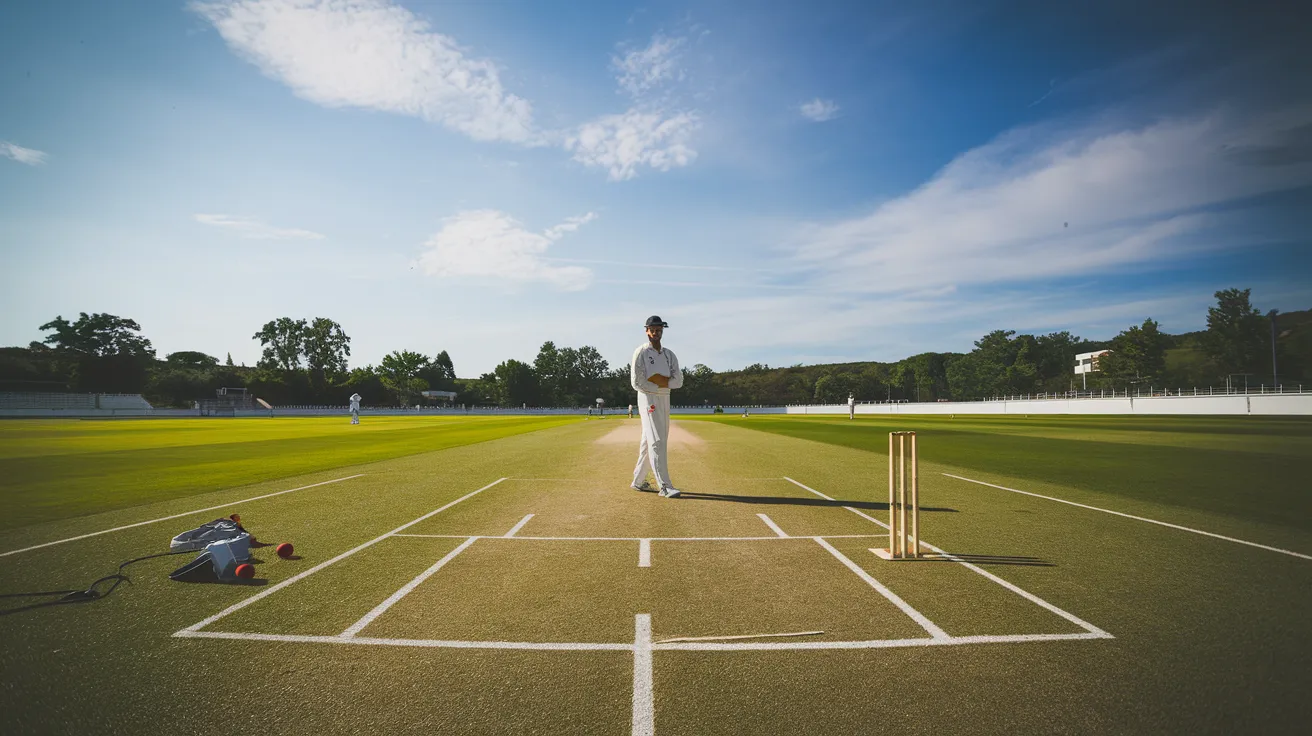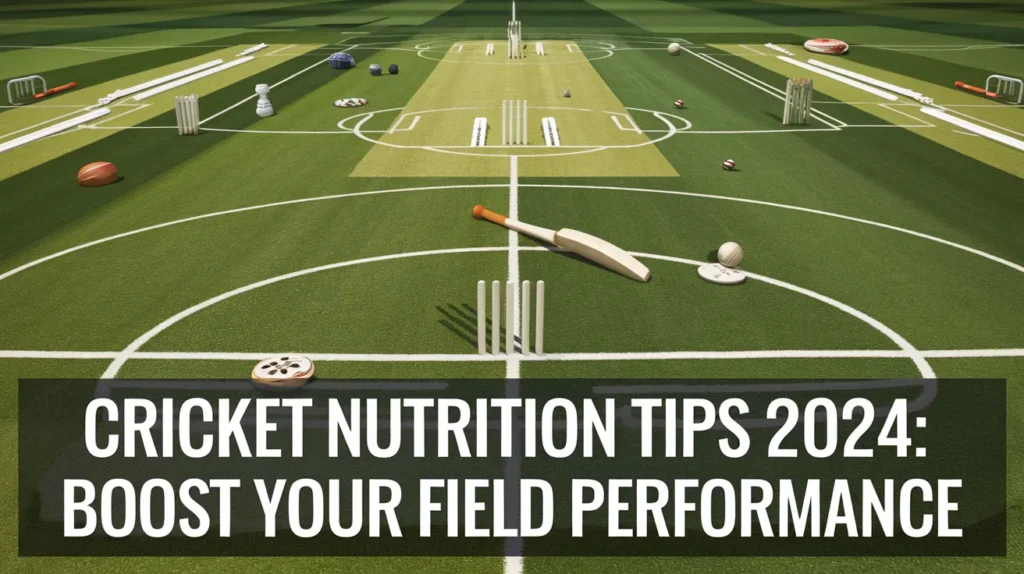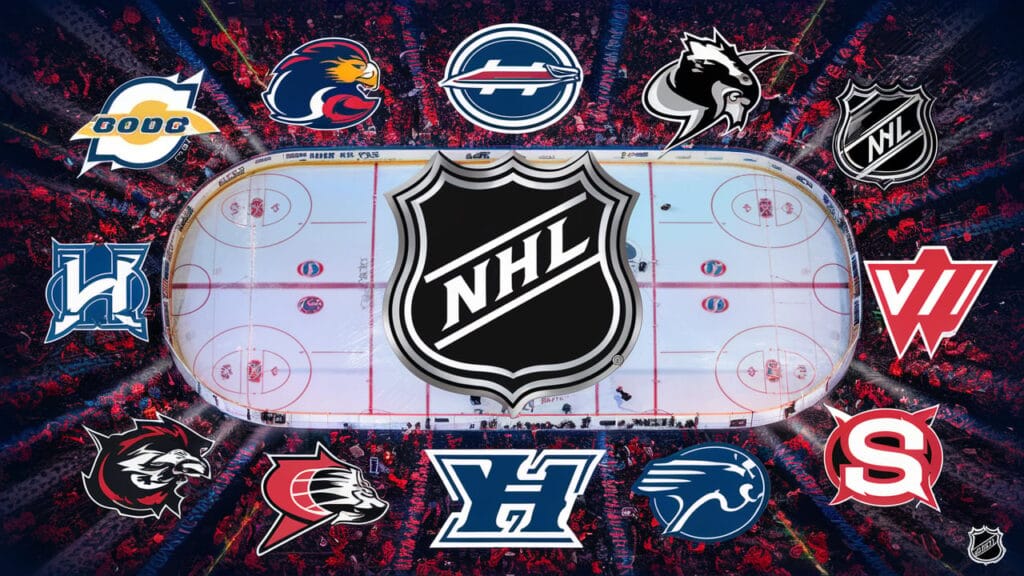Cricket Nutrition Tips for 2024
Cricket is more than just a game; it’s a test of endurance, strength, and strategy. Whether you’re playing in local leagues or aspiring to reach professional levels, what you eat can make or break your performance on the field. Cricket Nutrition Tips 2024 Proper nutrition is the fuel that powers your innings, helping you stay sharp, recover faster, and keep your energy levels up. In this article, we’ll explore essential Cricket Nutrition Tips for 2024 to help you boost your field performance.
Best Diets for Cricketers
There’s no one diet that works for everyone when it comes to cricket. But the key is a healthy, well-balanced diet high in whole foods. Imagine your body as a high-performance vehicle that requires the proper fuel to operate well.
- Carbohydrates: The primary energy source, especially on match days. The majority of your daily consumption of carbohydrates should come from whole grains, fruits, and vegetables.
- Protein: Essential for muscle repair and recovery. Lean meats, fish, eggs, and plant-based proteins should be part of your daily intake.
- Fats: Healthy fats from sources like avocados, nuts, seeds, and olive oil help in long-term energy storage and hormone production.
- Vitamins and Minerals: Don’t neglect your micronutrients. A variety of fruits and vegetables will ensure you get the necessary vitamins and minerals to keep your immune system strong and bones healthy.
Pre-Match Meals
What you eat before a match can significantly impact your performance. The goal is to consume a meal that’s rich in carbohydrates and moderate in protein to keep your energy levels up without feeling too full or sluggish.
- Timing: Aim to eat your pre-match meal about 3-4 hours before the game. This allows time for digestion and prevents any discomfort during play.
- What to Eat: A good pre-match meal might include whole-grain pasta with grilled chicken and vegetables or a quinoa salad with mixed greens, nuts, and a lean protein source.
- Snacks: If your match is early in the morning, a smaller meal or a snack like a banana with peanut butter an hour before the game can provide a quick energy boost.
Post-Match Recovery
Recovery doesn’t just happen; it’s something you need to plan for. Post-match nutrition is critical to replenishing your energy stores and aiding muscle repair.
- Protein Intake: After a match, consume a meal high in protein within two hours. This could be something like grilled fish or a smoothie with protein powder, spinach, and berries.
- Carbohydrates: To replenish glycogen stores, pair your protein with carbohydrates. Whole-grain bread, brown rice, and sweet potatoes are great choices.
- Hydration: Rehydrate with water or an electrolyte drink. If you’ve been sweating heavily, a recovery drink with added electrolytes can help balance your body’s sodium and potassium levels.
Essential Supplements for Cricketers
Supplements can be beneficial when you can’t get everything you need from your diet. Still, a well-rounded diet should be supplemented by them rather than substituted.
- Protein Powders: These are great for those who need to up their protein intake, especially after matches or training sessions.
- Creatine: Known for its benefits in increasing muscle mass and strength, creatine can also help in recovery.
- Electrolyte Supplements: These are particularly useful during intense training sessions or in hot climates to prevent cramping and dehydration.
- Multivitamins: If you struggle to get enough vitamins from your diet, a daily multivitamin can help cover your bases.
Read More: Iconic Football Stadiums 2024: Explore the Best Worldwide

Hydration Strategies for Cricketers
Staying hydrated is key to maintaining performance, particularly in longer formats of the game. Exhaustion, cramps, and heatstroke can result from dehydration.
- Before the Match: Start hydrating the day before a match. Drink plenty of water and include hydrating foods like watermelon or cucumbers in your diet.
- During the Match: Sip water or an electrolyte drink regularly. Avoid guzzling too much at once, which can lead to bloating.
- After the Match: Continue hydrating even after the match has ended. Coconut water or a Sports nutrition for cricket drink can help replenish lost electrolytes.
The Role of Protein in Cricket Nutrition
Protein is the building block of muscles, making it an essential nutrient for cricketers. It not only helps in muscle repair but also supports immune function and the production of enzymes and hormones.
- Sources: Lean meats like chicken and turkey, fish, eggs, and plant-based sources like lentils, beans, and tofu.
- Daily Intake: Depending on your training intensity, aim for 1.2 to 2.0 grams of protein per kilogram of body weight.
Carbohydrates: Your Energy Source
Carbohydrates are the primary source of energy, especially during high-intensity activities like sprinting and fast bowling.
- Complex Carbs: Opt for complex carbohydrates like oats, brown rice, and sweet potatoes. These provide a slow release of energy, keeping you fueled longer.
- Simple Carbs: Post-match, simple carbs like fruits can quickly replenish glycogen stores.
Healthy Fats: Balance Your Diet
While carbs and proteins often steal the spotlight, fats are equally important. They are essential for hormone production and long-term energy.
- Sources: Incorporate avocados, nuts, seeds, and olive oil into your Diet for cricketers healthy fats.
- Benefits: These fats support brain health, reduce inflammation, and provide long-lasting energy.
Snack Wisely: In-Between Matches
Snacking smartly can help maintain your energy levels throughout the day. Choose snacks that have both carbohydrates and protein.
- Examples: Greek yogurt with honey, an apple with almond butter, or a handful of nuts and dried fruit.
- Avoid: Processed snacks high in sugar, as they can lead to energy crashes.
Meal Timing: When to Eat and Why
The timing of your meals is almost as crucial as the contents. Proper meal timing ensures that your body has the nutrients it needs when it needs them.
- Before Training: A small meal or snack 1-2 hours before training can provide the energy you need to perform at your best.
- After Training: Eat within 30 minutes to 2 hours post-training to aid recovery and replenish energy stores.
People also ask
Is it healthy to eat crickets?
Yes, crickets are a healthy source of protein, vitamins, and minerals.
How much protein is in 100 crickets?
Approximately 13 grams of protein are in 100 crickets.
Are crickets more nutritious than chicken?
Crickets offer more protein per gram and contain essential micronutrients like iron and B12, but both are nutritious.
Are crickets a Superfood?
Yes, crickets are considered a superfood due to their high protein content and rich nutrient profile.
Conclusion
Cricket Nutrition Tips 2024 Achieving peak performance on the cricket field isn’t just about training hard—it’s about fueling your body with the right nutrients. By following these Nutrition tips for cricketers, you can enhance your stamina, improve recovery, and ultimately, perform better. Remember, consistency is key, and even small changes in your diet can lead to significant improvements on the field.
FAQs
1. What should I eat before a cricket match?
Eat a meal rich in carbohydrates and moderate in protein about 3-4 hours before the match.
2. Can I use supplements instead of real food?
Supplements should complement, not replace, a well-balanced diet.
3. How much water should I drink during a match?
Sip water regularly to stay hydrated, but avoid drinking too much at once.
4. Is protein important for cricketers?
Yes, protein is essential for muscle repair and recovery.
5. What are good snacks for cricketers?
Opt for snacks like Greek yogurt, nuts, and fruit that combine protein and carbohydrates.




